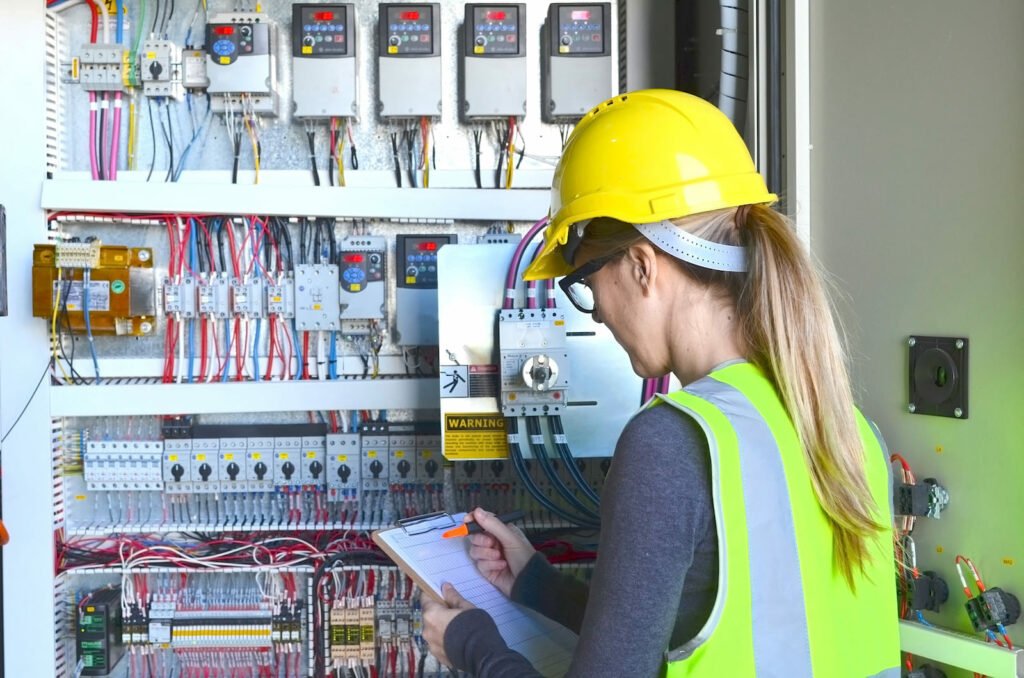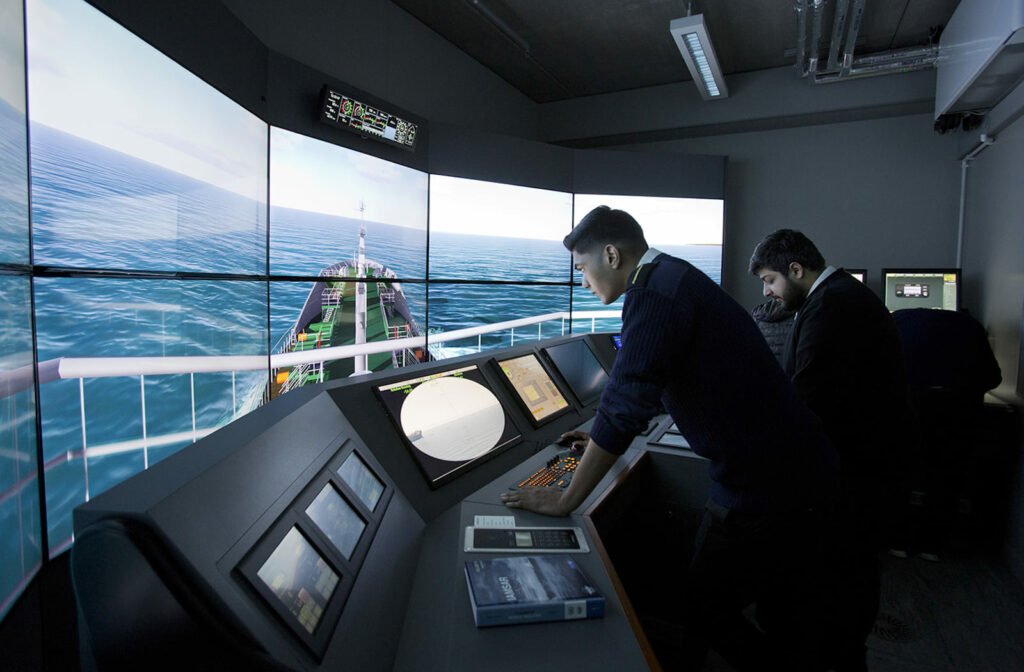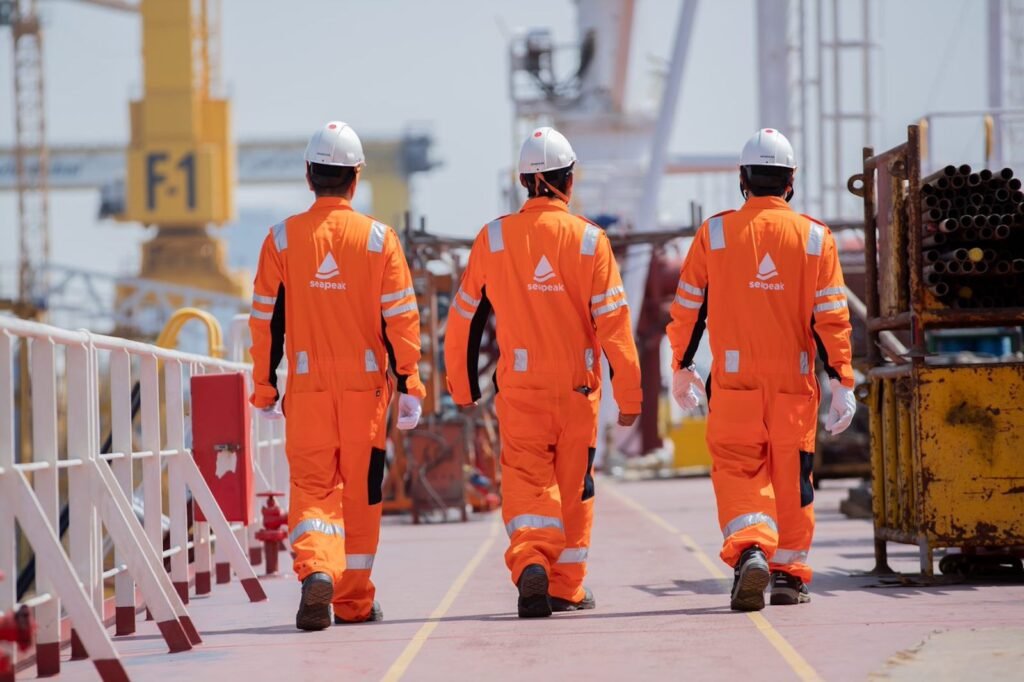Training Programmes
SCROLL DOWN
Training Programmes
The training programmes for Officer Cadets are usually three years in duration and comprise five training phases, rotating between periods at college for academic and professional studies, and periods working at sea to gain practical experience and complete the MNTB’s Training Record Book.
These five phases can be summarised as follows:

Phase 1 (College)
The training programme commences with an initial college phase, which provides Officer Cadets with the necessary preparatory knowledge and understanding before the first sea phase. An STCW Basic Safety Training Week (BSTW) also has to be successfully completed before a new seafarer can join a ship, while some other optional courses may be completed during this first college phase.
Phase 2 (Sea)
Officer Cadets join their first vessels to attain practical operational experience and complete the first stages of their MNTB Training Record Book, as evidence of task completion and competency. Cadets will work under the supervision of their department’s training officers, to put theory learnt at college into practice and develop practical operational skills.
Phase 3 (College)
Officer Cadets return to college to consolidate the experience and knowledge they have gained at sea, advance their academic and professional studies to Level 4 standard and complete any scheduled STCW training courses. By the end of this phase, they will normally have attained the underpinning academic knowledge required for initial certification by the UK’s Maritime & Coastguard Agency (MCA).
Phase 4 (Sea)
During this second sea phase, Officer Cadets consolidate the academic and professional knowledge gained during Phase 3, complete the higher level tasks contained in their MNTB Training Record Book, and work towards operational competency in watchkeeping duties and other responsibilities.
Phase 5 (College)
During this final college phase, Officer Cadets complete all outstanding elements and examinations for initial certification by MCA, including remaining STCW training courses. In addition, they will complete additional academic studies and examination to Level 5 standard, which provides certain academic exemptions towards the second certification stage after further experience and required sea time is gained as a junior officer

At the end of each training programme, successful candidates should have attained their initial Certificate of Competency (CoC) from the MCA, as well as the appropriate academic award for the route concerned, as follows:
Deck Cadets
- Higher National Diploma (HND) in Nautical Science
- Foundation Degree (FdSc) or Scottish Professional Diploma (SPD) in Marine Operations
- BSc (Hons) Degree in Nautical Science
Marine Engineer Cadets
- Higher National Diploma (HND) in Marine Engineering
- Foundation Degree (FdEng) or Scottish Professional Diploma (SPD) in Marine Engineering
- BEng (Hons) Degree in Marine Engineering
Marine Electro-Technical Officer (ETO) Cadets
- Higher National Diploma (HND) in Marine Electrical and Electronic Engineering
- Foundation Degree (FdEng) or Scottish Professional Diploma (SPD) in Marine Electrical and Electronic Engineering
- BEng (Hons) Degree in Marine Electrical and Electronic Engineering
The HND and FD academic and professional qualifications also allow progression on to an Honours Degree programme, if desired.
What career are you interested in?

No matter what career path you choose, we will find the right place for you!
A six-part television programme produced by Scottish Television in conjunction with CareersatSea.org provides some very useful insights in to working at sea in the Merchant Navy:
Further information for you to consider
Additional information about maritime careers is available from the following industry sources:
Ready for the next step?
For further information about maritime careers, please contact us at: [email protected]
Once you are ready to apply for a cadetship, please email your application letter and Curriculum Vitae (CV) to us at: [email protected], and confirm your preferred training discipline (i.e. Deck Cadetship, Engineer Cadetship, METO Cadetship or Hotel Trainee).
